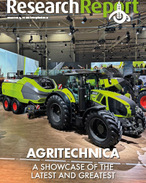This article is 2 years old. Images might not display.
DPIRD plant pathologist, Dr Sarah Collins, said the type of soil renovation and the mobility of the pest or disease could make a difference to how long the benefits of soil amelioration lasted.
DPIRD scientists joined with researchers from The University of Western Australia, South Australian Research and Development Institute and University of Melbourne in assessing the impacts of renovation in overcoming a range of soil constraints at field trial sites in Yerecoin, Darkan and Williams in Western Australia.
While the soils at each site differed, the techniques tested were similar and aimed to modify the soil profile by loosening (deep rip), inversion (mouldboard plough) or mixing (one-way plough or rotary spading) the soil to a depth of 30-40cm.
"Soilborne diseases and nematode pests are major constraints to our cropping systems," Dr Collins said.
"We've been looking at sites in our cropping region that are particularly impacted by these issues, which are also areas where soil amelioration is becoming a part of farming practices.
"We started out with the theory that soil renovation or deep tillage would be beneficial for mitigating diseases and pests - having moved our critters around in the profile meant they might not have the same influence on susceptible crops compared to those grown on non-renovated soils."
Researchers have now collected four seasons of data from the Yerecoin and Darkan sites.
"We found that while the sites had different soil types and constraints, soil inversion was the most successful of the three techniques to reduce both the Rhizoctonia solani AG8 in the soil profile and managing the root lesion nematode species present.
"For rhizoctonia, reduction of the fungus in the topsoil has been maintained over the four seasons post amelioration and those sites have had really good yield advantages. Soil inversion also reduced the root lesion nematodes for two of the four seasons."
DPIRD research scientist Wayne Parker said the trials were part of research examining the influences of agronomic decisions on crop performance following soil amelioration, which is a co-investment with the Grains Research and Development Corporation (GRDC).
"Basically, we are trying to grow more grain from the rain that we get," Mr Parker said.
More information about the trials is featured on the Grains Convo podcast episode - ‘Can amelioration reduce the impact of soil pathogens and nematode pests?' - which can be found on Apple Podcasts and Spotify, or by visiting www.gga.org.au/resources/grains-podcast/























